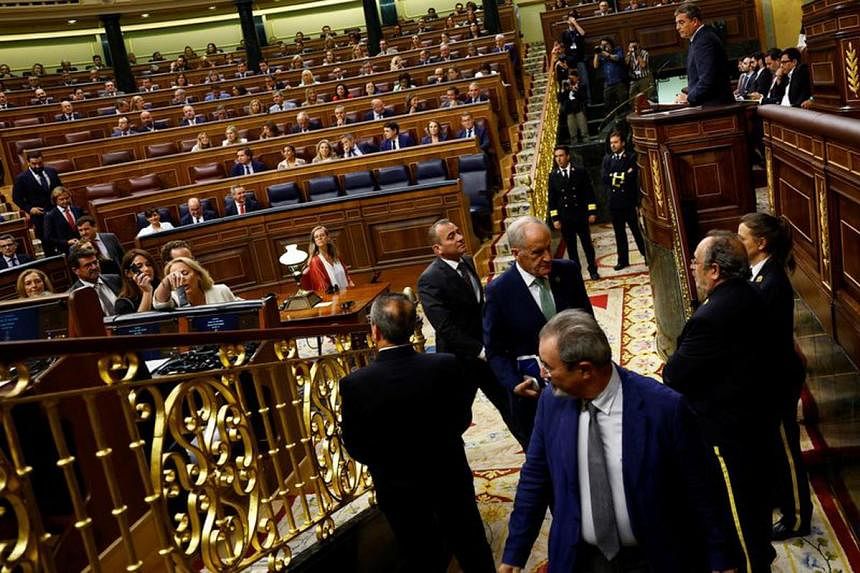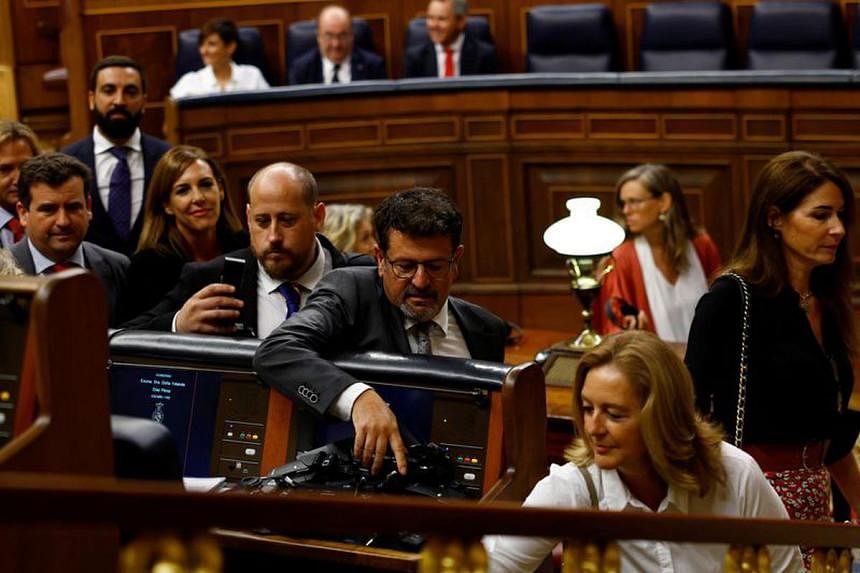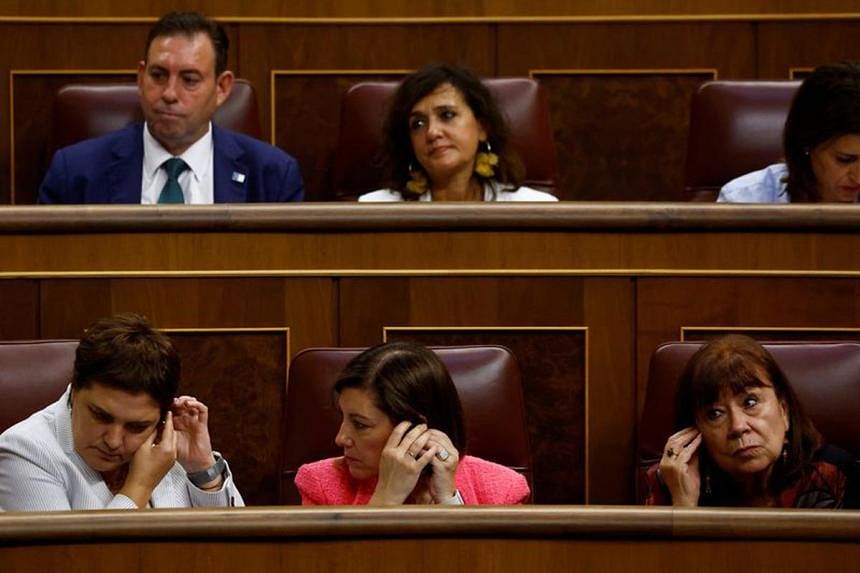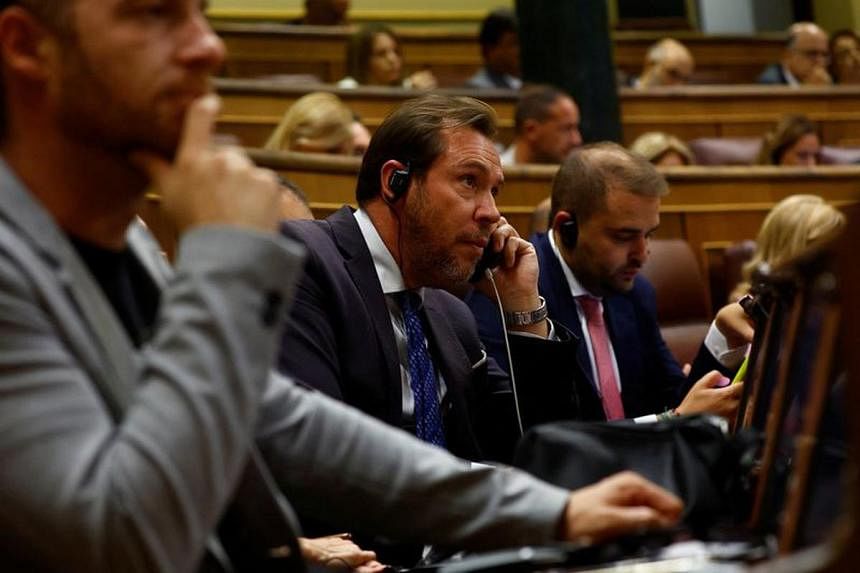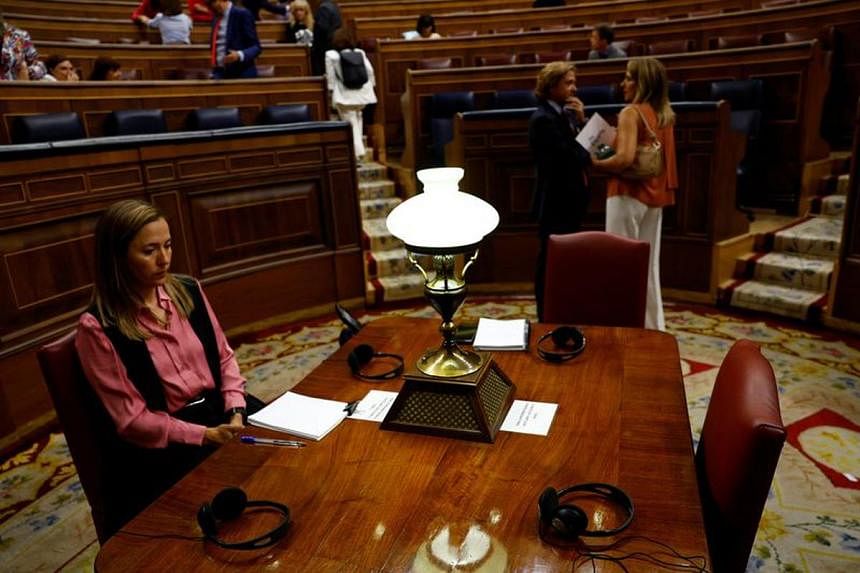MADRID - Spain's lower house of parliament allowed the use of regional languages for the first time on Tuesday as part of a deal to elect a Socialist speaker and amid vocal protests from conservative lawmakers.
Legislators used earphones to listen to live translations into Spanish of speeches in Catalan, Basque and Galician as they debated amending house rules to allow their use in proceedings, which had previously been banned in the lower house but partially admitted in the Senate.
The reform was passed with 176 votes in favour, 169 against and two abstentions. It comes as acting Prime Minister Pedro Sanchez courts Catalan separatist parties to support him in an investiture vote.
Sanchez's caretaker government has also asked the European Union to make the three languages official at the bloc's institutions.
Jose Ramon Gomez Besteiro, a Socialist deputy from the northwestern Galicia region, was the first to speak in his native Galician and was interrupted by far-right Vox spokesperson Pepa Millan, who objected to his use of the language.
After the speaker admonished her, Vox's 33 lawmakers abandoned the chamber in protest, leaving their earphones on a seat where Sanchez usually sits. Lawmakers from the conservative People's Party (PP) refused to use them.
The new measure was agreed on Aug. 17 in exchange for backing Francina Armengol's speakership bid.
Her election was the first step in Sanchez's attempts to woo regional parties which hold the keys to renewing his term.
He will have to wait until the end of September for his conservative opponent, Alberto Nuñez Feijoo of the People's Party (PP), to make a first attempt at securing the premier job after his party placed first in the July general election.
Feijoo, a bilingual Galician speaker, has so far failed to cobble together enough votes to secure a majority.
Public use of Spain's regional languages was censored by the state during Francisco Franco's dictatorship.
After Franco's death in 1975, Spain's fledgling democracy ushered in regional constitutions which declared them official within their region alongside Spanish.
The use of these languages has long been a point of contention between Spain's nationalist right, which champions a centralised vision of the country, and other parties seeking to bolster regional rights and diversity.
There are an estimated 9 million speakers of Catalan, 3 million Galician users and some 750,000 people fluent in Basque. REUTERS
